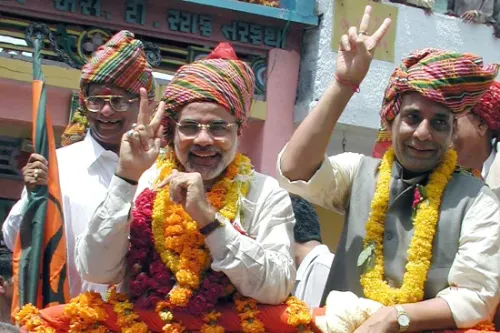Motive, Motivation
In a recent statement, CR Kesavan, a prominent leader of the Bharatiya Janata Party (BJP), has taken a critical stance against the Hindenburg report, which has stirred political and economic debates in India. Kesavan’s remarks also target the Congress party and the recently formed Indian National Developmental Inclusive Alliance (INDI), raising questions about their motives and motivations behind endorsing or utilizing the report.
Table of Contents
The Hindenburg Report: Overview and Controversy
The Hindenburg report, published by the U.S.-based investment research firm Hindenburg Research, has made headlines for its critical assessment of certain Indian businesses and their financial practices. The report has accused some prominent companies of financial irregularities and corporate governance issues, leading to a significant media and public response.
The content of the report has fueled discussions about corporate ethics, regulatory oversight, and the financial health of the targeted companies. It has also led to political debates, with various stakeholders interpreting the report’s findings in the context of broader political and economic narratives.
CR Kesavan’s Criticism of the Report
CR Kesavan, known for his vocal and often provocative statements, has sharply criticized the Hindenburg report. His criticism centers on several key points:
1. Questioning Credibility: Kesavan has questioned the credibility of the Hindenburg report, suggesting that it may have been influenced by ulterior motives. He has called for a thorough examination of the report’s sources and methodologies to assess its reliability.
2. Political Motivations: Kesavan has raised concerns about the timing of the report’s release and its alignment with political developments. He implies that the report may be part of a broader strategy to undermine the current government and its allies.
3. Impact on Indian Companies: The BJP leader has argued that the report could have detrimental effects on Indian businesses, potentially damaging their reputation and financial stability. He has suggested that the focus should be on addressing legitimate corporate governance issues through established regulatory channels rather than sensationalizing the findings.
Critique of Congress and INDI Bloc
In addition to his criticism of the Hindenburg report, Kesavan has directed his remarks towards the Congress party and the INDI bloc. His comments highlight several concerns:
1. Motive and Motivation: Kesavan has questioned the motive behind the Congress party and the INDI bloc’s support or endorsement of the Hindenburg report. He suggests that their actions may be driven by political gains rather than genuine concern for corporate governance.
2. Political Strategy: The BJP leader has implied that the Congress party and the INDI bloc might be using the report to advance their political agenda, particularly in the context of upcoming elections or political battles. He argues that leveraging such reports for political purposes undermines the credibility of the criticism.
3. Allegations of Bias: Kesavan has accused the opposition parties of selectively using the report to target specific individuals or entities associated with the ruling party. He argues that this selective focus reflects a biased approach rather than an objective assessment of the issues at hand.
Reactions and Implications
Kesavan’s comments have sparked a range of reactions from various quarters:
1. Political Responses: The Congress party and INDI bloc have responded to Kesavan’s criticism by defending their stance on the Hindenburg report. They argue that their support for the report is based on genuine concerns about corporate governance and financial transparency.
2. Public Debate: The criticism has contributed to ongoing public debates about the validity of the Hindenburg report and the broader implications for Indian businesses and politics. Media coverage and public discourse continue to explore the intersections between corporate ethics and political strategy.
3. Regulatory Oversight: The controversy has highlighted the need for robust regulatory oversight and transparent mechanisms for addressing corporate governance issues. There are calls for independent investigations and enhanced regulatory measures to ensure accountability and protect the interests of stakeholders.
Moving Forward
The debate surrounding the Hindenburg report, CR Kesavan’s criticism, and the responses from the Congress party and INDI bloc reflect the complex interplay between business, politics, and public perception. As the situation evolves, several key areas will be closely monitored:
1. Investigation and Accountability: The focus will likely remain on investigating the allegations made in the Hindenburg report and assessing the validity of its findings. Ensuring transparency and accountability in both corporate practices and political responses will be crucial.
2. Political Dynamics: The role of the Hindenburg report in shaping political narratives and strategies will continue to be a point of discussion. Understanding how such reports influence political campaigns and public opinion will be important for analyzing their broader impact.
3. Corporate Governance: The need for improved corporate governance and regulatory frameworks will be emphasized. Strengthening oversight mechanisms and ensuring ethical practices in the corporate sector will be key to addressing concerns raised by the report and similar investigations.
In conclusion, CR Kesavan’s criticism of the Hindenburg report and the political implications for the Congress party and INDI bloc highlight the complex and often contentious relationship between corporate governance, political strategy, and public discourse. As the situation develops, it will be important to approach the issues with a focus on transparency, accountability, and constructive dialogue.








